As we approach the day we celebrate the birth of the holy Son of God, born to a virgin, God incarnate, let us not forget the awesome miracle that occurred that day so long ago! There are so many things about the birth of Jesus (Yeshua in Hebrew) that never cease to amaze me, every single one of them proving the miraculous fulfillment of prophecies given by God to His prophets hundreds of years before.
For example, in Isaiah 7:14, the prophet said, “A virgin will be with child and bear a son, and she will call His name Immanuel.” When the angel Gabriel appeared to the virgin Mary (Luke 1:26-35), she believed his words telling her that the Holy Spirit would come upon her, and the power of the Most High would overshadow her, causing her to conceive the Son of God! 700 years after the prophecy given by Isaiah, Matthew wrote, “All this took place to fulfill what was spoken by the Lord through the prophet.” (Matthew 1:22) Thus, Jesus’ birth totally fulfilled this prophecy!
The fact that Herod, in a jealous rage, sought to have all the male babies under two years old killed, hopefully, in his mind, to prevent another from usurping his kingdom, was another way in which Satan tried to prevent Christ from fulfilling His earthly ministry. Here is another miracle! An angel of the Lord appeared at night to Joseph in a dream and instructed him, “Get up! Take the Child and His mother and flee to Egypt and stay there until I tell you; for Herod is going to search for the Child to kill Him.” (Matthew 2:13)
Thankfully, Joseph heeded the angel’s warning and took Mary and the baby Jesus, while it was still night, and left for Egypt, staying there until the death of Herod. And yet another prophecy was miraculously fulfilled: “Out of Egypt I called my Son.” (Matthew 2:15 and Hosea 11:1) What if Joseph had chosen not to obey God’s voice through the angel?
Even the fact that Joseph and Mary were required to journey to Bethlehem to register for a census fulfilled another prophecy. Joseph, though currently living in Nazareth in Galilee, was of the house and lineage of David, requiring him to return to Bethlehem to register. The prophet Micah had told us hundreds of years before, “But you, Bethlehem Ephrathah, though you are little among the thousands of Judah, yet out of you shall come forth to Me the One to be Ruler in Israel, whose goings forth are from of old, from everlasting.” (Micah 5:2) This was clearly a prophecy of where the Messiah would be born! Was it a coincidence that this census required Mary and Joseph to journey to this small, seemingly insignificant village? I think not! Matthew reiterated this prophecy when he recalled what the Wise Men answered Herod upon his inquiry as to where the Christ Child should be born, “So they said to him, ‘In Bethlehem of Judea; for this is what has been written by the prophet: And you, Bethlehem, land of Judah, are by no means least among the leaders of Judah; for from you will come forth a Ruler who will shepherd My people Israel.'”
The Wise Men (probably at least three, although the Bible does not state the number of them) were possibly astrologists and prognosticators from the East, possibly Persia, which is the present-day country of Iran. You may remember the story of Daniel, the Israelite young man taken captive by the Babylonians, thrown into the lion’s den and miraculously saved from certain death! Have you ever thought about the possibility that while Daniel served in the King’s court, he told many stories and gave prophecies about a coming Messiah? God used Daniel in amazing ways during his years there. Later on, the Persian empire (Iran) conquered Babylonia and God used their King Cyrus to rescue the Jews and send them back to their home country of Israel! An amazing story, to be sure. My point here is this: Could it have been that Daniel told stories of this Messiah which were handed down through the generations to the Persian people, and that these Wise Men may have come to inquire whether these stories might have indeed been fulfilled that night in Bethlehem? They looked at stars as guideposts; God guided them to the Ultimate Guidepost, the Lord Jesus Christ! This is the incredible way in which God looks after His Word to fulfill it!
One thing we do know is this: Matthew 2:9-11 says, “After hearing the king, they (the Wise Men) went on their way; and behold, the star, which they had seen in the east, went on ahead of them until it came to a stop over the place where the Child was to be found. When they saw the star, they rejoiced exceedingly with great joy. And after they came into the house, they saw the Child with His mother Mary; and they fell down and worshipped Him. Then they opened their treasures and presented to Him gifts of gold, frankincense, and myrrh.”
Miracles? Coincidences? I believe the Wise Men knew that this was indeed the Christ Child that had been promised and awaited these many years! Do you believe in miracles? I do! I also believe you have to choose to believe, because God comes to those who look for Him, as He did to a young virgin girl, wise men looking for a sign, and men and women through the centuries who have been willing to obey and act on the promises of God given to them. Will you “come and adore Him” today as the Wise Men of old did? I pray that at this beautiful Christmas season, your anthem will be, “O Come, Let Us Adore Him”! Please listen to my piano arrangement of this beautiful old hymn and worship Him with me!
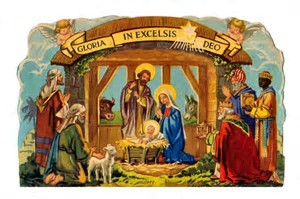

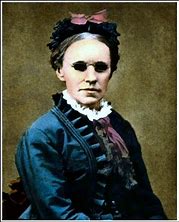 If you have gone to church all of your life (as I have) or if you have only attended a few times for special services or events you, no doubt, have heard some of the following songs sung: “Blessed Assurance”, “Near the Cross”, “To God Be the Glory” or “Pass Me Not, O Gentle Savior“. What do they all have in common? The lyricist to these and nearly 9,000 other Gospel songs and hymns is a woman whose name you may have heard; she was Frances Jane van Alstyne, and she went by her maiden name, Fanny J. Crosby. She is known as the “Queen of Gospel Songwriters” and the “Mother of modern congregational singing in America”, with more than 100 million copies of her songs in print. Perhaps no one has seen more of their songs included in church hymnals than Fanny Crosby. But, what you may not know about her is the fact she was blind from shortly after birth!
If you have gone to church all of your life (as I have) or if you have only attended a few times for special services or events you, no doubt, have heard some of the following songs sung: “Blessed Assurance”, “Near the Cross”, “To God Be the Glory” or “Pass Me Not, O Gentle Savior“. What do they all have in common? The lyricist to these and nearly 9,000 other Gospel songs and hymns is a woman whose name you may have heard; she was Frances Jane van Alstyne, and she went by her maiden name, Fanny J. Crosby. She is known as the “Queen of Gospel Songwriters” and the “Mother of modern congregational singing in America”, with more than 100 million copies of her songs in print. Perhaps no one has seen more of their songs included in church hymnals than Fanny Crosby. But, what you may not know about her is the fact she was blind from shortly after birth!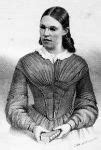
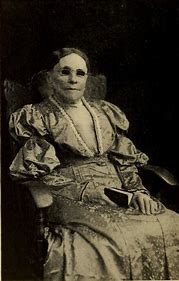 One of my favorite Fanny J. Crosby songs is the well-known hymn, “Praise Him, Praise Him” which I recorded a few years ago in a bit of an up-tempo jazzy version; I hope she would have approved! The melody is composed by Chester G. Allen. I hope you will enjoy my arrangement as we celebrate the life and music of a remarkable woman devoted to God in spite of her challenges, and who was determined to write lyrics that would lift up Jesus and win people to Him! Fanny had set a goal of winning a million people to Christ through her hymns, and whenever she wrote a hymn she prayed it would bring men and women to Christ; she kept careful records of those reported to have been saved through her hymns! I believe that goal has been surpassed many times over throughout the years as people of all ages continue to be blessed, inspired and changed through listening to the words of Fanny J. Crosby set to music!
One of my favorite Fanny J. Crosby songs is the well-known hymn, “Praise Him, Praise Him” which I recorded a few years ago in a bit of an up-tempo jazzy version; I hope she would have approved! The melody is composed by Chester G. Allen. I hope you will enjoy my arrangement as we celebrate the life and music of a remarkable woman devoted to God in spite of her challenges, and who was determined to write lyrics that would lift up Jesus and win people to Him! Fanny had set a goal of winning a million people to Christ through her hymns, and whenever she wrote a hymn she prayed it would bring men and women to Christ; she kept careful records of those reported to have been saved through her hymns! I believe that goal has been surpassed many times over throughout the years as people of all ages continue to be blessed, inspired and changed through listening to the words of Fanny J. Crosby set to music!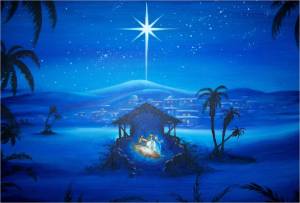
![Worship[1]](https://rebeccabakerbafford.files.wordpress.com/2014/02/worship1.jpg)

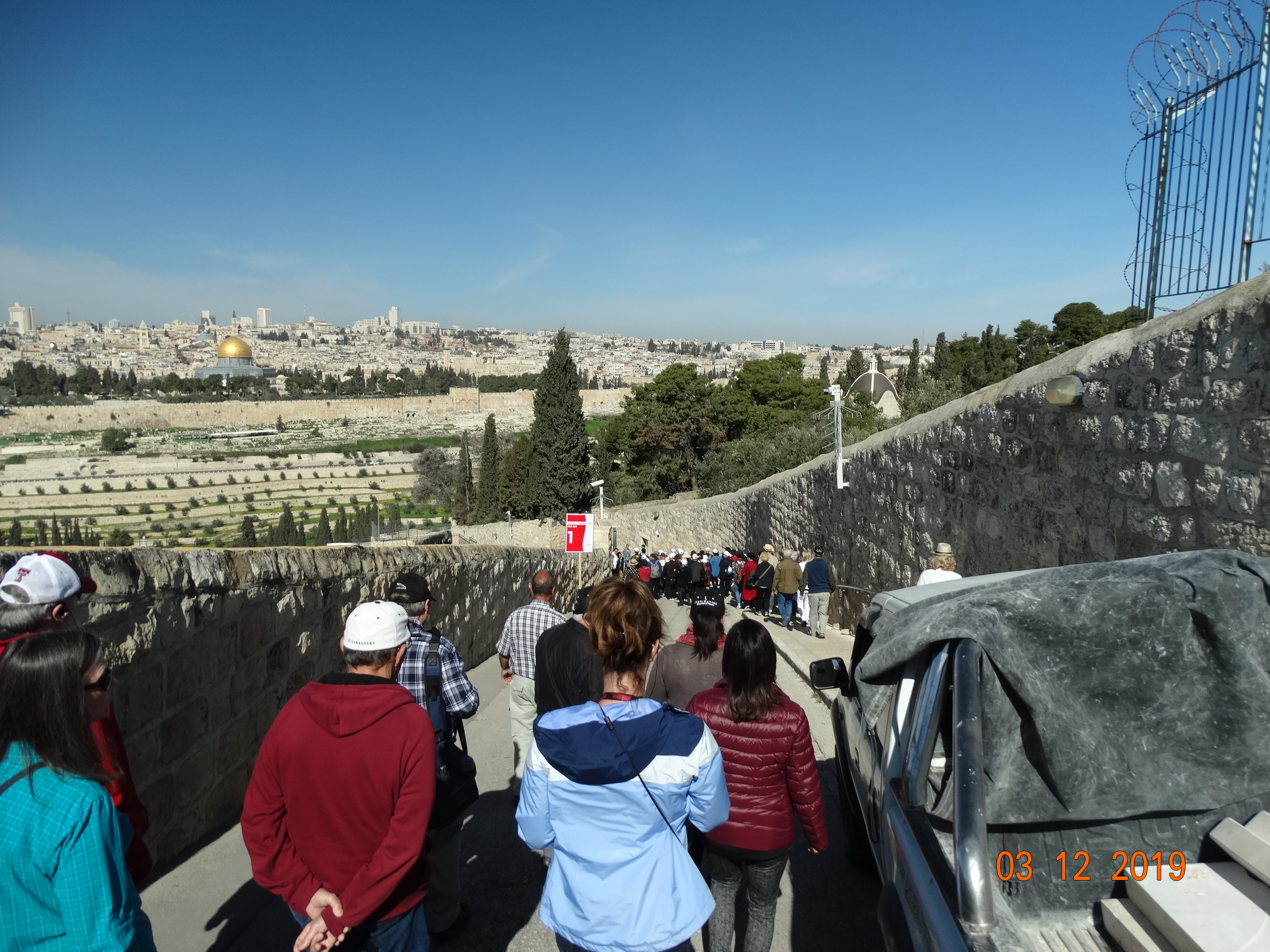

 You have no doubt heard the beloved Christmas song, O Holy Night, which is played and sung around the world, beautifully proclaiming the night our Savior was born in a manger in Bethlehem! But, when I searched more deeply into the origins of this beloved carol, I was somewhat surprised by what I found.
You have no doubt heard the beloved Christmas song, O Holy Night, which is played and sung around the world, beautifully proclaiming the night our Savior was born in a manger in Bethlehem! But, when I searched more deeply into the origins of this beloved carol, I was somewhat surprised by what I found. What would Christmas be without those all familiar and beautifully sung carols we have undoubtedly heard since childhood? Did you ever wonder how they came to be called “carols” and what their origins are?
What would Christmas be without those all familiar and beautifully sung carols we have undoubtedly heard since childhood? Did you ever wonder how they came to be called “carols” and what their origins are?![house-sparrow-791726[1]](https://rebeccabakerbafford.files.wordpress.com/2015/07/house-sparrow-7917261.jpg?w=300)
You must be logged in to post a comment.